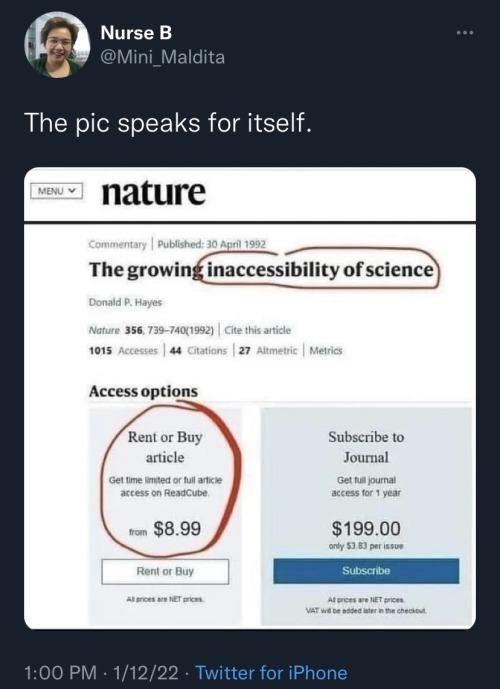"In An Unprecedented Transformation Of China’s Arid Landscapes, Large-scale Solar Installations Are

"In an unprecedented transformation of China’s arid landscapes, large-scale solar installations are turning barren deserts into unexpected havens of biodiversity, according to groundbreaking research from the Chinese Academy of Sciences. The study reveals that solar farms are not only generating clean energy but also catalyzing remarkable ecological restoration in some of the country’s most inhospitable regions.
The research, examining 40 photovoltaic (PV) plants across northern China’s deserts, found that vegetation cover increased by up to 74% in areas with solar installations, even in locations using only natural restoration measures. This unexpected environmental dividend comes as China cements its position as the global leader in solar energy, having added 106 gigawatts of new installations in 2022 alone.
“Artificial ecological measures in the PV plants can reduce environmental damage and promote the condition of fragile desert ecosystems,” says Dr. Benli Liu, lead researcher from the Chinese Academy of Sciences. “This yields both ecological and economic benefits.”
The economic implications are substantial. “We’re witnessing a paradigm shift in how we view desert solar installations,” says Professor Zhang Wei, environmental economist at Beijing Normal University. “Our cost-benefit analysis shows that while initial ecological construction costs average $1.5 million per square kilometer, the long-term environmental benefits outweigh these investments by a factor of six within just a decade.” ...
“Soil organic carbon content increased by 37.2% in areas under solar panels, and nitrogen levels rose by 24.8%,” reports Dr. Sarah Chen, soil scientist involved in the project. “These improvements are crucial indicators of ecosystem health and sustainability.”
...Climate data from the study sites reveals significant microclimate modifications:
Average wind speeds reduced by 41.3% under panel arrays
Soil moisture retention increased by 32.7%
Ground surface temperature fluctuations decreased by 85%
Dust storm frequency reduced by 52% in solar farm areas...
The scale of China’s desert solar initiative is staggering. As of 2023, the country has installed over 350 gigawatts of solar capacity, with 30% located in desert regions. These installations cover approximately 6,000 square kilometers of desert terrain, an area larger than Delaware.
“The most surprising finding,” notes Dr. Wang Liu of the Desert Research Institute, “is the exponential increase in insect and bird species. We’ve documented a 312% increase in arthropod diversity and identified 27 new bird species nesting within the solar farms between 2020 and 2023.”
Dr. Yimeng Wang, the study’s lead author, emphasizes the broader implications: “This study provides evidence for evaluating the ecological benefit and planning of large-scale PV farms in deserts.”
The solar installations’ positive impact stems from several factors. The panels act as windbreaks, reducing erosion and creating microhabitats with lower evaporation rates. Perhaps most surprisingly, the routine maintenance of these facilities plays a crucial role in the ecosystem’s revival.
“The periodic cleaning of solar panels, occurring 7-8 times annually, creates consistent water drip lines beneath the panels,” explains Wang. “This inadvertent irrigation system promotes vegetation growth and the development of biological soil crusts, essential for soil stability.” ...
Recent economic analysis reveals broader benefits:
Job creation: 4.7 local jobs per megawatt of installed capacity
Tourism potential: 12 desert solar sites now offer educational tours
Agricultural integration: 23% of sites successfully pilot desert agriculture beneath panels
Carbon reduction: 1.2 million tons CO2 equivalent avoided per gigawatt annually
Dr. Maya Patel, visiting researcher from the International Renewable Energy Agency, emphasizes the global implications: “China’s desert solar model could be replicated in similar environments worldwide. The Sahara alone could theoretically host enough solar capacity to meet global electricity demand four times over while potentially greening up to 20% of the desert.”
The Chinese government has responded by implementing policies promoting “solar energy + sand control” and “solar energy + ecological restoration” initiatives. These efforts have shown promising results, with over 92% of PV plants constructed since 2017 incorporating at least one ecological construction mode.
Studies at facilities like the Qinghai Gonghe Photovoltaic Park demonstrate that areas under solar panels score significantly better in environmental assessments compared to surrounding regions, indicating positive effects on local microclimates.
As the world grapples with dual climate and biodiversity crises, China’s desert solar experiment offers a compelling model for sustainable development. The findings suggest that renewable energy infrastructure, when thoughtfully implemented, can serve as a catalyst for environmental regeneration, potentially transforming the world’s deserts from barren wastelands into productive, life-supporting ecosystems.
“This is no longer just about energy production,” concludes Dr. Liu. “We’re witnessing the birth of a new approach to ecosystem rehabilitation that could transform how we think about desert landscapes globally. The next decade will be crucial as we scale these solutions to meet both our climate and biodiversity goals.”"
-via Green Fingers, January 13, 2025
More Posts from Mothymyths and Others
Do you consider cat declawing to be unethical, and if so, what would you consider to be the best alternative?
yeah declawing is ABSOLUTELY unethical from a medical standpoint, and I'll tell you why!
so this is what a cat's paw looks like on the inside:

take a quick second to look it over, and note which parts of it are actually touching the ground and bearing the cat's weight.
it's the "palm" and the ends of the toes, right?

well, that's the problem. so you probably ALSO noticed that the cat's claws are actually attached to those last toe bones, which is why when a cat is declawed, they remove that entire last toe joint like this:

so the issue is, the bone that was bearing the cat's weight is gone. it no longer exists. this forces the weight of the cat's body onto the end of the second bone, here:

and that's a HUGE fucking problem. that bone was never meant to touch earth, the ends of it are covered in nerves and connective tissue instead of padding! putting weight on it WILL cause the cat pain, chronic-for-the-rest-of-your-life pain!
cats are terrible about actually expressing pain, but if you pay attention to how declawed and non-declawed cats walk, you'll notice that declawed cats put their feet down much more gingerly and are more hesitant with their first steps.

and this is because it hurts.
please don't declaw your cat. just use claw caps or keep their nails trimmed.
thanks for attending my TED talk bye

<3


“You must never give in to despair. Allow yourself to slip down that road and you surrender to your lowest instincts. In the darkest times, hope is something you give yourself. That is the meaning of inner strength.”
ATLA
if you or anyone you know you needs an abortion, call 1-800-230-Plan, or go to http://AbortionFinder.org










Happy autumn everyone! Seriously though fall is one of my favorite aesthetics in animation.

my last polaroid of 2020

When you realize Inktober starts in like 3 days and haven’t mentally prepared

-
 sirikenobilegends liked this · 1 month ago
sirikenobilegends liked this · 1 month ago -
 locusnegotium reblogged this · 1 month ago
locusnegotium reblogged this · 1 month ago -
 krustyspacepimpadventurediary reblogged this · 1 month ago
krustyspacepimpadventurediary reblogged this · 1 month ago -
 falbet reblogged this · 1 month ago
falbet reblogged this · 1 month ago -
 kisiti reblogged this · 1 month ago
kisiti reblogged this · 1 month ago -
 kisiti liked this · 1 month ago
kisiti liked this · 1 month ago -
 skellingtondrac reblogged this · 1 month ago
skellingtondrac reblogged this · 1 month ago -
 thehardveneer liked this · 1 month ago
thehardveneer liked this · 1 month ago -
 cacchieressa liked this · 1 month ago
cacchieressa liked this · 1 month ago -
 zambonirider reblogged this · 1 month ago
zambonirider reblogged this · 1 month ago -
 zambonirider liked this · 1 month ago
zambonirider liked this · 1 month ago -
 ohclippy liked this · 1 month ago
ohclippy liked this · 1 month ago -
 crowarmy reblogged this · 1 month ago
crowarmy reblogged this · 1 month ago -
 secretlyacrow reblogged this · 1 month ago
secretlyacrow reblogged this · 1 month ago -
 scoot-overjwatson reblogged this · 1 month ago
scoot-overjwatson reblogged this · 1 month ago -
 mayax81 liked this · 1 month ago
mayax81 liked this · 1 month ago -
 feast-of-the-rabb1t liked this · 1 month ago
feast-of-the-rabb1t liked this · 1 month ago -
 dumpster-thoughts reblogged this · 1 month ago
dumpster-thoughts reblogged this · 1 month ago -
 isawthe-sign liked this · 1 month ago
isawthe-sign liked this · 1 month ago -
 crowsnestcottage liked this · 1 month ago
crowsnestcottage liked this · 1 month ago -
 thorow liked this · 1 month ago
thorow liked this · 1 month ago -
 marilenalena liked this · 1 month ago
marilenalena liked this · 1 month ago -
 birdyaviary reblogged this · 1 month ago
birdyaviary reblogged this · 1 month ago -
 turtlycute liked this · 1 month ago
turtlycute liked this · 1 month ago -
 lennyhammerstein reblogged this · 1 month ago
lennyhammerstein reblogged this · 1 month ago -
 dionysianmirth liked this · 1 month ago
dionysianmirth liked this · 1 month ago -
 cptappleobservation liked this · 1 month ago
cptappleobservation liked this · 1 month ago -
 tm-trx reblogged this · 1 month ago
tm-trx reblogged this · 1 month ago -
 martianbees reblogged this · 1 month ago
martianbees reblogged this · 1 month ago -
 a-roaming-dragon reblogged this · 1 month ago
a-roaming-dragon reblogged this · 1 month ago -
 a-roaming-dragon liked this · 1 month ago
a-roaming-dragon liked this · 1 month ago -
 djjohnnyt reblogged this · 1 month ago
djjohnnyt reblogged this · 1 month ago -
 wandering-not-lost04 liked this · 1 month ago
wandering-not-lost04 liked this · 1 month ago -
 thetaetaeworld liked this · 1 month ago
thetaetaeworld liked this · 1 month ago -
 thecityinthesea1849 reblogged this · 1 month ago
thecityinthesea1849 reblogged this · 1 month ago -
 impr0bablezer0 reblogged this · 1 month ago
impr0bablezer0 reblogged this · 1 month ago -
 the-shrouded-ghost reblogged this · 1 month ago
the-shrouded-ghost reblogged this · 1 month ago -
 sixthreblogsthe6th reblogged this · 1 month ago
sixthreblogsthe6th reblogged this · 1 month ago -
 poorlylaidplans reblogged this · 1 month ago
poorlylaidplans reblogged this · 1 month ago -
 jennybel75 reblogged this · 1 month ago
jennybel75 reblogged this · 1 month ago -
 sorryiamsherlocked liked this · 1 month ago
sorryiamsherlocked liked this · 1 month ago -
 roguetelepath reblogged this · 1 month ago
roguetelepath reblogged this · 1 month ago -
 screamingcicada reblogged this · 1 month ago
screamingcicada reblogged this · 1 month ago -
 disinherits liked this · 1 month ago
disinherits liked this · 1 month ago -
 cpt-paracord reblogged this · 1 month ago
cpt-paracord reblogged this · 1 month ago -
 nessiemonster88 liked this · 1 month ago
nessiemonster88 liked this · 1 month ago -
 healingmachinewithskeletoninside liked this · 1 month ago
healingmachinewithskeletoninside liked this · 1 month ago -
 tangledndark reblogged this · 1 month ago
tangledndark reblogged this · 1 month ago
